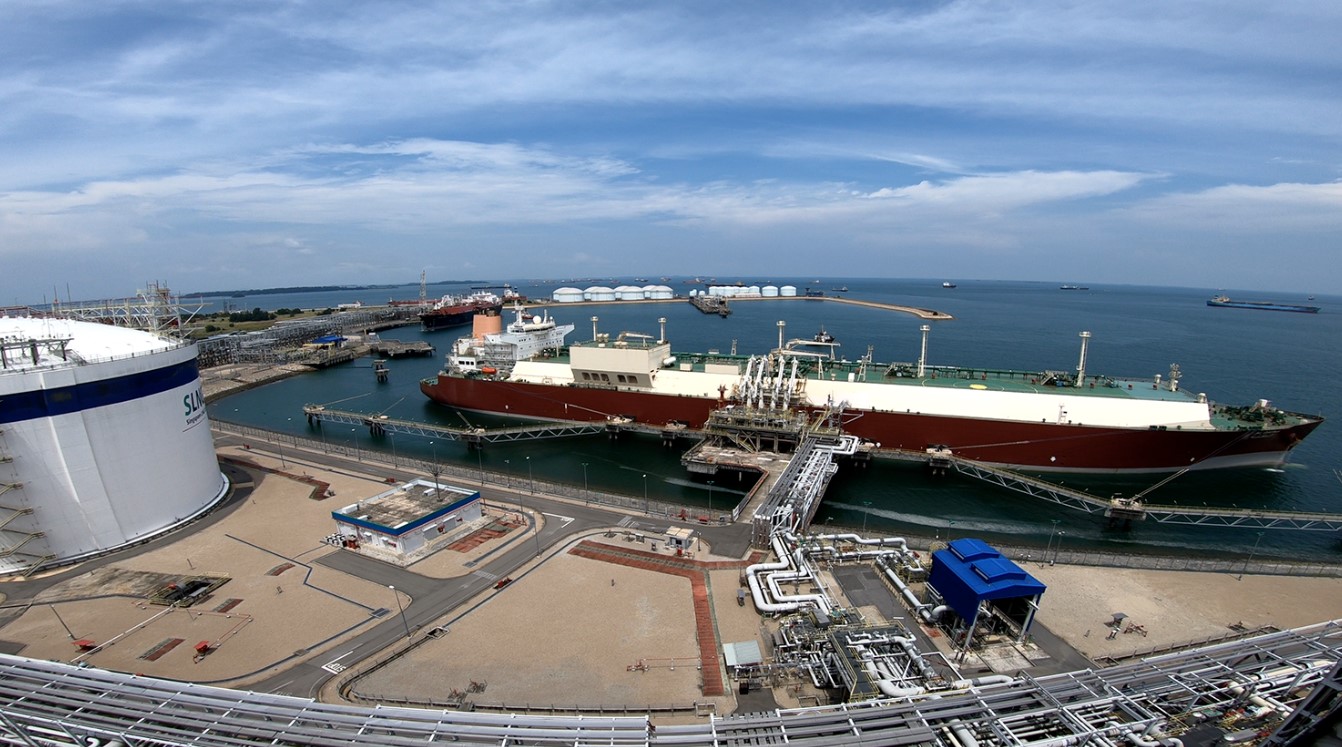Singapore LNG, the operator of the country’s first LNG import terminal on Jurong Island, has secured approval from the Singapore government to develop and operate the country’s second LNG import facility.
Singapore’s Deputy Prime Minister Lawrence Wong announced SLNG’s plan to develop the second LNG terminal in Singapore on Tuesday during SLNG’s 10th anniversary gala dinner.
He said in a speech that the terminal would have up to 5 mtpa capacity to “meet Singapore’s energy needs and enhance our energy security.”
“Our current LNG terminal has throughput capacity of about 10 million tonnes per annum (mtpa). Our peak utilization this year was 60 percent, so we currently still have some headroom,” he said.
“But this will eventually not be enough as our demand for LNG continues to grow,” Wong said.
With a second terminal, Singapore would be able to meet its power generation needs entirely with LNG, if necessary, Wong said.
“Unlikely we will have to do so anytime soon, since we will continue to have access to piped natural gas,” he said.
“But having the additional capacity will be helpful; it will give SLNG the flexibility to better meet the growing LNG needs of the shipping industry and the wider region, and advance our position as an LNG bunkering and trading hub,” Wong said.
“We are still studying the exact size and the best way to build this terminal. All of you know that waterfront land comes at a premium in Singapore,” Wong said.
“So one possibility is to start with an offshore terminal at Jurong Port. Further studies are being conducted, and more details will be announced in due course,” he said.
FSRU
State-owned Singapore LNG said in a separate statement it is studying a floating storage and regasification unit (FSRU) concept for the second terminal.
The FSRU concept offers “greater flexibility in meeting the nation’s energy security and sustainability objectives, as it could be easily redeployed to another location as a receiving terminal, if necessary,” it said.
Singapore LNG said it would connect the facility to Singapore’s gas pipeline grid via a new onshore gas pipeline.
The firm is aiming to have the second terminal operational by the end of this decade.
Singapore’s first LNG terminal
Singapore’s first LNG terminal on Jurong Island began commercial operations in May 2013.
It currently operates with two jetties, three storage tanks of 180,000 cbm each, a fourth storage tank of 260,000 cbm, and a peak sendout capacity of around 11 mtpa.
As of end September 2023, the LNG terminal has received about 430 LNG cargoes for its throughput service, or some 26.58 million tonnes, according to Singapore LNG.
It has also received close to 190 ships for its storage and reload and LNG bunkering services, and 130 ships for its gassing-up and cool-down service, it said.
Additionally, the terminal has conducted 18 LNG transshipment and more than 3,730 LNG truck loading operations, Singapore LNG said.
In March 2021, Singapore’s Energy Market Authority appointed ExxonMobil LNG Asia Pacific, a unit of the US energy giant, and Singapore’s Sembcorp Fuels as new term importers.
The two firms joined the first two term importers, Pavilion Energy Singapore and Shell Eastern Trading.
In order to boost competition and provide more options for gas buyers, the EMA launched a request for proposals last year to add two more LNG term importers.
Expansion plans
Singapore LNG also released a document on Wednesday saying it plans to increase the available LNG storage capacity to serve rising demand for the fuel and broaden the options for LNG trading and other businesses.
“Several options are being explored in this regard, including bringing in a floating Storage and regasification unit (FSRU) which would be a relatively easier to implement option; and/or building additional storage tanks at the terminal that would be “future-ready” – equipped with membrane technology that provides the flexibility for the tanks to be used to store other greener fuels like ammonia,” it said.
“There are also other expansion projects in the pipeline, such as building out the tertiary jetty to enable more LNG bunkering and small-scale reload activities; and constructing a more permanent and upgraded LNG truck loading facility that can accommodate more trucks and operate more efficiently, with better equipment,” the firm said.
LNG imports rose last year
According to GIIGNL data, LNG imports into Singapore increased by 0.6 million tons last year, offsetting a disruption in pipeline gas supplies from Indonesia.
Singapore imported 3.7 million tons last year, a rise of 18.6 percent compared to the previous year.
The chartering of additional LNG floating storage in application of temporary measures, introduced by the EMA, to secure the country’s energy supply, has also contributed to LNG imports growth, it said.
This includes the charter of MOL’s FSRU Challenger, now renamed Bauhinia Spirit and serving Hong Kong’s first LNG import terminal.
(Updated with a statement by Singapore LNG.)

